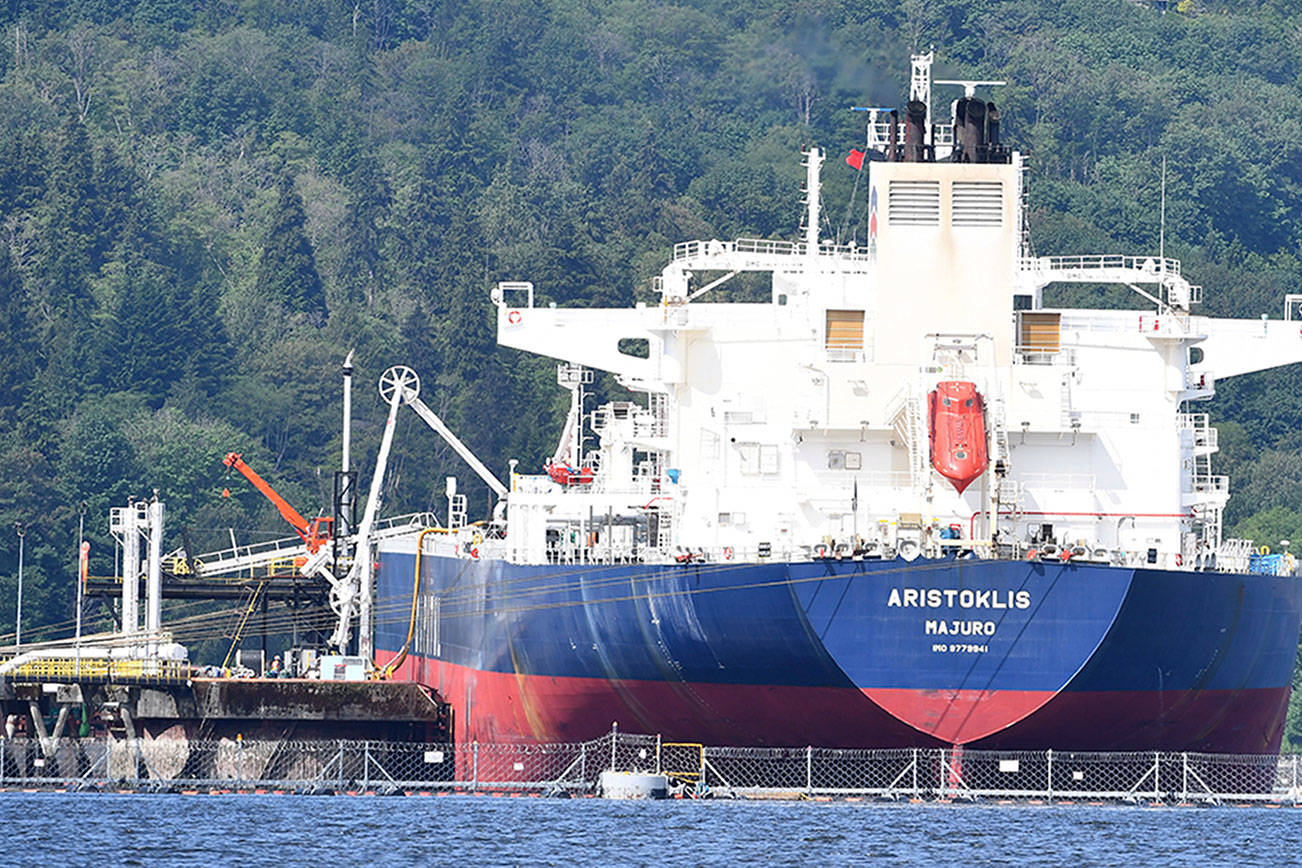By Rob Gillies
The Associated Press
TORONTO — Canada’s federal government said it is buying a controversial pipeline from the Alberta oil sands to the Pacific Coast to ensure it gets built.
Prime Minister Justin Trudeau’s government plans to spend $4.5 billion Canadian (U.S. $3.4 billion) to purchase Kinder Morgan’s Trans Mountain pipeline.
The federal cabinet approved the purchase on Tuesday.
The pipeline expansion would triple the capacity of an existing line to ship oil extracted from the oil sands in Alberta across the snow-capped peaks of the Canadian Rockies. It would end at a terminal outside Vancouver, Canada, resulting in a seven-fold increase in the number of tankers in the shared waters between Canada and Washington state.
Facing stiff environmental opposition from British Columbia’s provincial government and activists, Houston-based Kinder Morgan earlier halted essential spending on the project and said it would cancel it altogether if the national and provincial governments could not guarantee it.
“It must be built and it will be built,” Finance Minister Bill Morneau said.
The pipeline would allow Canada to diversify and vastly increase exports to Asia, where it could command a higher price. Canada has the world’s third largest oil reserves but 99 percent of its exports now go to refiners in the U.S., where limits on pipeline and refinery capacity mean Canadian oil sells at a discount.
“For too long we have relied on one trading partner for our oil and gas exports,” Natural Resources Minister Jim Carr said.
The project has pitted oil-rich Alberta against coastal British Columbia, where concerns about fisheries, real estate values, tourism and ocean ecology are high. Vancouver Mayor Gregor Robertson calls the pipeline an unacceptable risk that threatens 10,000 jobs in the harbor.
Indigenous leaders and environmentalists have pledged to do whatever necessary to thwart the pipeline, including chaining themselves to construction equipment.
“If it means standing up for the land against bulldozers or the military, we have to do that,” Union of British Columbia Indian Chiefs spokeswoman Chief Judy Wilson said.
The Trans Mountain expansion is projected to lead to a tanker traffic balloon from about 60 to more than 400 vessels annually as the pipeline flow increases from 300,000 to 890,000 barrels per day.
Morneau called the purchase an “exceptional situation” and said the government doesn’t intend to be a long-term owner of the pipeline. The government is buying the existing pipeline and the scheduled twinned pipeline expansion.
Steve Kean, chairman and chief executive of Kinder Morgan Canada Ltd., said the deal represents the best opportunity to complete the expansion project. “We’ve agreed to a fair price for our shareholders and we’ve found a way forward for this national interest project,” he told a conference call with financial analysts.
Analysts have said China is eager to get access to Canada’s oil, but largely gave up hope that a pipeline to the Pacific coast would be built.
Trudeau approved the expansion, arguing that it was “economically necessary” and enabled him to overcome opposition to a carbon tax plan that will help Canada cut its greenhouse emissions.
But many indigenous people see the 620 miles of new pipeline as a threat to their lands, echoing concerns raised by Native Americans about the Keystone XL project in the U.S. Many in Canada say it also raises broader environmental concerns by enabling increased development of the carbon-heavy oil sands.
More than 200 people, including two members of Parliament, have been arrested already at Kinder Morgan’s oil tanker and terminal site in Burnaby, B.C.
British Columbia Premier John Horgan said he’s worried about the “catastrophic consequences” should there be a spill, regardless of the owner, and will continue to fight it in court.
Alberta Premier Rachel Notley cheered the news of the federal government’s purchase on Twitter.
“This project has more certainty than ever before. We won’t stop until the job is done.”

